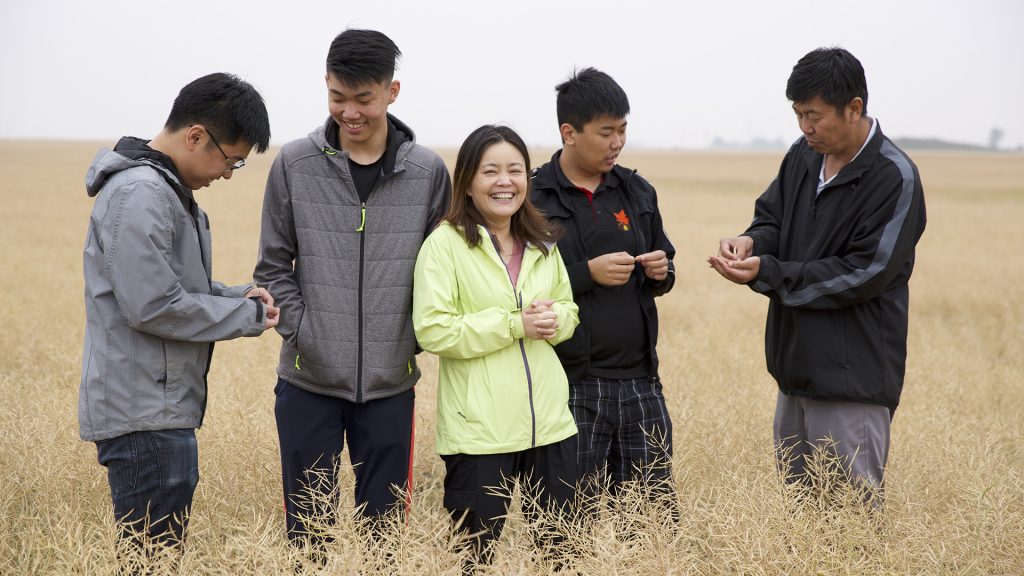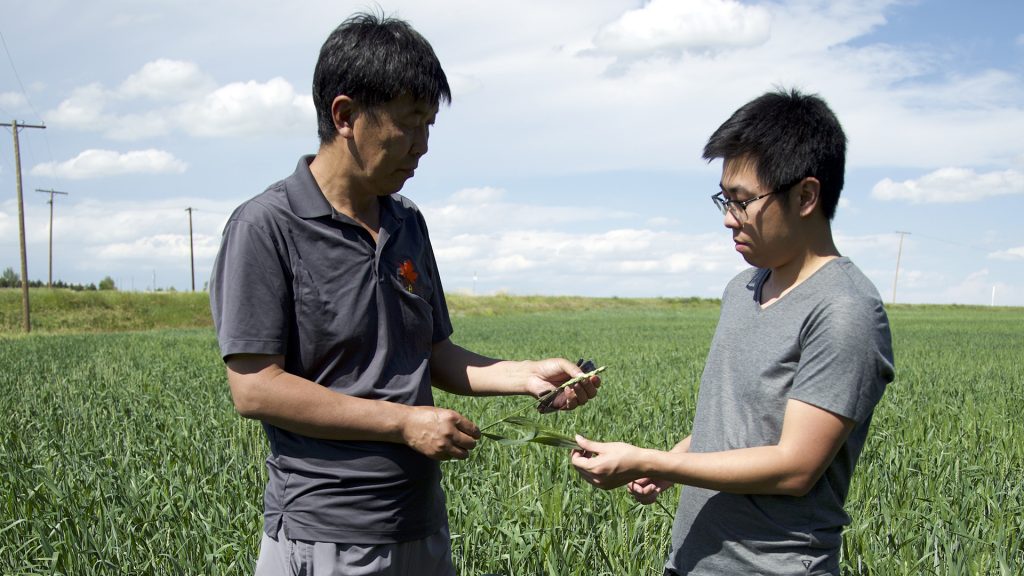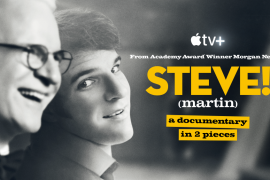
Did you know that China is now the second biggest market in the world for wine? That’s just one of the things I learned watching “My Farmland,” an interesting look at how things are changing down on the farm in Canada. The 44-minute documentary premieres Friday on CBC DOCS.
Award-winning filmmaker Diana Dai has produced this balanced look at culture clashes in a remote farming region of Saskatchewan as well as in the heart of Ontario’s wine country. Much has been written about the impact of Chinese investment in Canadian cities and how this has spiked house prices in Vancouver and Toronto. “My Farmland” reveals that rural regions are also undergoing price wars.
Dai, a Chinese immigrant who has lived in Canada for 24 years, looks at three struggling families: Stuart Leonard is a fourth generation farmer in tiny Ogema, Sask., who wonders if he’ll ever be able to hand the farm off to a fifth. Perhaps not at the rate he has been selling his land. The 2017 famine out west ruined crops and devastated farmers, forcing Leonard to sell 280 acres of his nearly 1100 acre family farm. The price of farmland in that area has tripled, he says, mainly due to the influx of Chinese investors. Thirty per cent of the land around Ogema is now owned by outside investors.

David Fu is a newcomer to nearby Coronach, Sask. He worked on a small farm in China before immigrating to Vancouver; now he’s back with his family trying to live the farm life in the Canadian prairies. That same famine, the worst in 50 years, forced him to auction off some of his very expensive farm equipment, and the local banks aren’t in any hurry to bail out this stranger from a strange land.
In Niagara, Simon Zhang now manages one of Ontario’s oldest and most prestigious wineries, Marynissen Estates. His wealthy uncle back in Beijing bought it in 2012 as an investment. That investor is not alone; according to this documentary, it is estimated that 10 or 12 Niagara wineries have Chinese owners.
Simon, however, admits he did not know one grape from another when he agreed to run the farm. His family sees it as an opportunity to produce wines that they will sell back in that booming Chinese market, but they slam up against more obstacles then they bargained for. Wives and brothers seem sorry they ever came to this snow covered hell, and, besides, farming is seen as a second class profession back home.
advertisement
While many of the Saskatchewan locals have never seen Chinese farmers before, there isn’t much prejudice or resentment captured on camera. Farming may be the most democratic profession; if you can survive it, welcome, neighbour. Some of Leonard’s neighbours have cashed out as land prices skyrocketed, so to them, foreign ownership is a lottery win. There is some hand-wringing as to what all this will do to their tight-knit community, although only a time machine could probably allow a town of 400 to gather round the ball diamond forever on a Friday night.
Hope amid the despair is glimpsed when Leonard and Fu share a moment at an auction and realize they are both in the same boat. Then there’s the whole undercurrent about Canada being the world’s breadbasket, and China’s growing and hungry population and – whoops. Canada/China relationships have seldom been worse.
The documentary might best be enjoyed with a spicy yet bitter Cabernet Sauvignon, to go with some food for thought.
“My Farmland” is written, directed and produced by Diana Dai in association with CBC Television. Available also on CBC GEM. Rating: ***1/2







1 Comment
Sounds very interesting to me. I grew up on a Saskatchewan farm and my dad was forced to give up farming in 1999. I am aware of some Chinese investment in farmland here in Saskatchewan and I’ve had questions about it. Farming has sure changed since the 90s in Saskatchewan. At that time most people were from farms but now most are not.